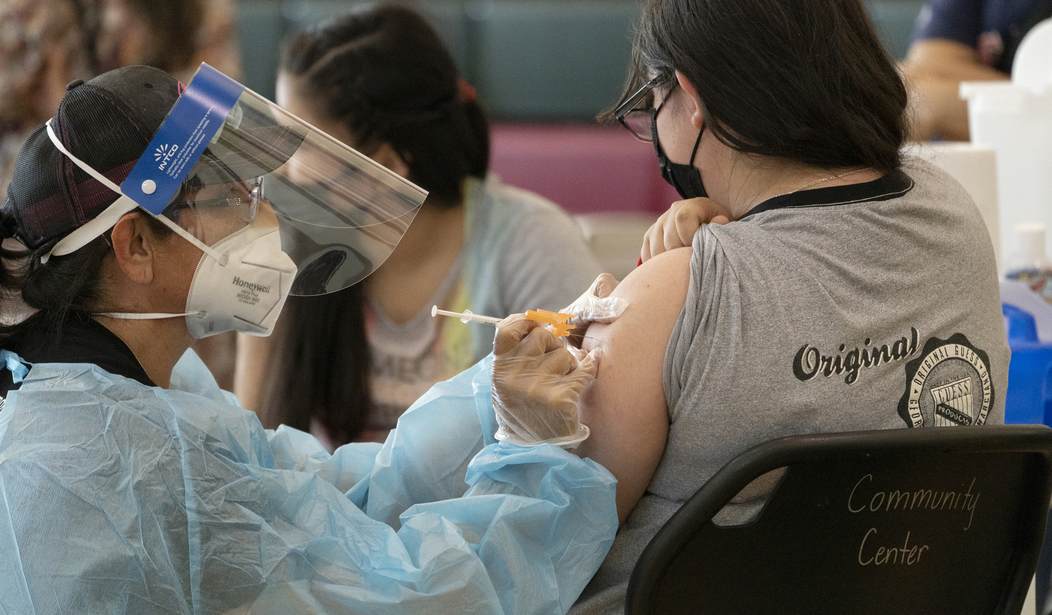A change in plans, and one that won’t make WHO and various countries happy. The FDA will authorize a “booster” shot of mRNA vaccines for immune-compromised Americans, sending them back for Round 3 before many nations get to Round 1:
The U.S. Food and Drug Administration is nearing a decision to authorize Covid-19 booster shots for certain people with weak immune systems, people familiar with the matter said, a shift in the American vaccination strategy as the Delta variant drives up cases of infection.
The agency could make a decision as early as Thursday and probably by Friday, one of the people said.
The agency is closing in on the booster-shot authorization amid evidence that vaccines are less effective protecting immunocompromised people from Covid-19 than they are in protecting the general population.
At the moment, this only applies to Pfizer and Moderna vaccines. Johnson & Johnson is testing whether a second round of its vaccine improves performance, but from our own personal experience, doctors didn’t recommend J&J to immune-compromised patients. All three manufacturers plan eventually to produce boosters for the general population, but for now the risk is for the immune-suppressed, such as cancer patients and transplant recipients.
The latter group stands to benefit most, according to a Canadian study:
Many scientists argue that the immunocompromised population is too diverse to uniformly recommend additional shots of coronavirus vaccine. Some may be protected by the standard vaccine dosage, despite their conditions. Others may be poorly shielded by the vaccines, but unable to benefit from an additional shot.
Studies suggest that patients such as organ transplant recipients are in between — often showing little immune response to the standard vaccine regimen, but benefiting from a third shot. One recent randomized, placebo-controlled study by Canadian researchers found that a third dose of the Moderna vaccine improved the immune response of people in that group.
Still undetermined is the efficacy of mix-and-match booster strategies. Can one mRNA vaccine be used as a booster for another, or do people need to stick with the same brand? What happens when a J&J recipient gets an mRNA booster? No one is talking about those issues yet, and it’s not clear that those questions are even being studied.
We won’t know for sure about the parameters of the booster, but in the meanwhile here’s Anthony Fauci selling a position that the FDA hasn’t officially taken yet:
The CDC is now urging pregnant women to get vaccinated. Dr. Anthony Fauci explains the importance of this recommendation. pic.twitter.com/XmQ0xqdfrX
— TODAY (@TODAYshow) August 12, 2021
“No vaccine, at least in this category, has an indefinite level of protection,” Fauci says. Perhaps not, but the vaccine for the SARS-CoV-1 virus still provides immunity seventeen years after the SARS outbreak in the early 2000s. That doesn’t include the immune suppressed, obviously, but that should be part of the context when predicting the longevity of effectiveness from current vaccines.
Even so, we’re planning to take advantage of the booster authorization for my wife, who is a multiple-organ transplant recipient, as soon as practical. We’re traveling in late September and it would be helpful to have the booster reach full effectiveness prior to getting on airplanes. YMMV, of course.








Join the conversation as a VIP Member